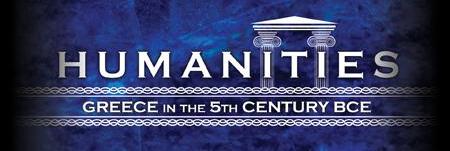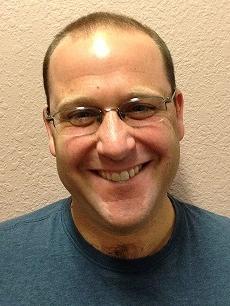Location:
This course will cover the rich and seminal history and literature of fifth-century Greece; the most creative and productive period in all human history. Our course will particularly focus on Athens, the world's first democracy, from which most of the liberal arts trace their origins.
These amazing developments began with the Battle of Marathon in 490 BCE, the clash between democratic Athens and the vast invading Persian Empire. From there we will trace how the victorious Athenians built up their power then fought with Sparta in the ruinous Peloponnesian War. We will end with the symbolic fall of the Golden Age of Athenian democracy, best symbolized by the philosopher Socrates’s drinking hemlock in 399 BCE. With those political struggles and warfare as the backdrop, the course will also trace the development and influence of Greece’s wide-ranging culture, which changed forever the way humanity thought about itself.
We will look at these events and developments mainly through the eyes of the primary literary sources of the time. Our historical narrative will come from the contemporary historians Herodotus and Thucydides and the later biographer Plutarch. We will also read the three tragic playwrights Aeschylus, Sophocles, and Euripides, and the sole extant comic playwright Aristophanes. As we shall see, to the Greeks theater was no mere diversion but was a powerful force for social discussion, political contemplation, public education, and religious expression. Finally, we will read selections from Plato, our principal source for the enigmatic philosopher Socrates.
Mike Lippman is a Lecturer in the Classics Department at the University of Arizona. His primary field of research is ancient drama, particularly Greek comedy. He has been involved in many modern reproductions of ancient plays as translator, actor, co director, and dramaturg. He also is particularly interested in the interplay of ancient political thought and its modern usage. He teaches classes on Sparta and Athens that not only explore antiquity but present the fascinating social experiments these societies represent.
Recommended Reading:
The Landmark Herodotus: The Histories. Anchor Books, 2009. ISBN: 978-1400031146.
The Landmark Thucydides: A Comprehesive Guide to the Peloponnesian War. Free Press, 1998. ISBN: 978-0684827902.
Plutarch. The Rise and Fall of Athens: Nine Greek Lives. Penguin Classics, 1960.ISBN: 978-0140441024.
Aeschylus. Oresteia. Hackett, 1998. ISBN: 978-0872203907.
Sophocles. The Theban Plays. Hackett, 2003. ISBN: 978-0872205857.
Euripides. Medea. Hackett, 2008. ISBN: 978-0872209237.
Euripides. Trojan Women. Oxford University Press, 2009. ISBN: 978-0195179101.
Euripides. Bacchae. Hackett, 1998. ISBN: 978-0872203921.
Aristophanes. Acharnians. Focus, 2003. ISBN:978-1585100873.
Aristophanes. Clouds. Hackett, 2000. ISBN: 978-0872205178.
Aristophanes. Lysistrata. Hacket, 2003. ISBN: 978-0872206038.
Aristophanes. Frogs. Focus, 2008. ISBN: 978-1585103089.
Plato. Symposium. Hackett, 1989. ISBN: 978-0872200760.
Plato. The Trial and Death of Socrates. Hackett, 2001. ISBN: 978-0872205543.
Here is a note from the instructor regarding those texts above:
We have arranged for the books above to be ordered through the UA Bookstore for the upcoming semester. Know, however, that these particular translations are NOT required. Rather, I have selected the translations that I believe to be most useful and/or accessible to modern readers. If, however, you have your own particular favorites (or copies lying around your house), by all means, use them. Also, every single reading we will be using this semester can easily be accessed for free online. I personally prefer the non-public-domain translations, but I am completely fine with you using whatever you prefer. I also give my full support to anyone who wishes to read any of the texts in the original Ancient Greek.
Looking forward to seeing you!!
-Mike Lippman







